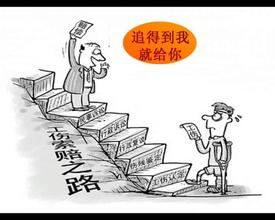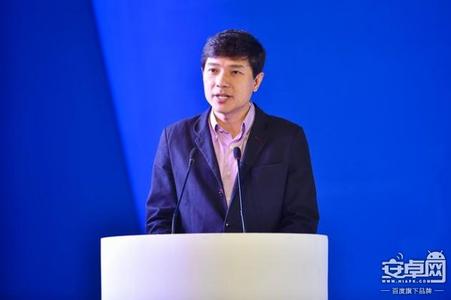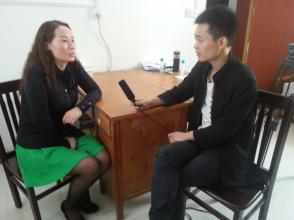摘要:作者访问了几名工伤工友以及一名为工人提供工伤法律援助的工作人员。 了解到发生工伤后工人的难处,以及他们对企业社会责任的看法和期盼。
Occupational injury and CSR
Last month I was up in Longgang where I met Huang Qingnan, who provides legal aid to injured workers. He introduced me to three former factory employees who had suffered occupational injuries. I started off by asking them about their background and how they suffered their injuries.
Mr Li was born in 1985 and is from Jiangxi. He started his career as a migrant worker about 5 years ago. He joked that he had started work as a child labourer at the age of 15. Shenzhen was his first destination. He worked in several factories as a casual worker before finally settling down in a small wooden door factory as a carpenter. He worked at the factory for three and a half years before suffering an accident in December 2004. He was trying to put a piece of small wood into a cutting machine. The machine had no guard and was malfunctioning.
The end of the second finger on his right hand was cut off, and the end part of his right middle finger was also permanently damaged. Li said five out of the 30 to 40 workers in the factory had suffered various injuries during the time he worked there.
Li and a colleague (Mr. Chen, who I also talked to during this discussion) subsequently found that the factory had no license, and reported it to the social security bureau. However, the social security bureau did not help them since the factory is not legal and therefore did not buy any insurance for its employees. The factory agreed to pay Li 20,000 RMB. According to regulations it is required to pay more than 50,000 RMB. Li subsequently decided to bring the case to the arbitration council with his colleague, Chen. He is currently working in another factory as an unskilled worker and is getting paid about 300 RMB per month.
Chen is from Guangxi. He worked at the same company as Li and had the end of his right middle finger cut off in an accident. He said he was supposed to have been paid at least 16,000 to 20,000 RMB by the factory. He has found a new job with another wooden door producer and says he has worked very carefully since the accident. Whenever he feels insecure, he will ask his colleagues to help. He said that Personal Protective Equipment (PPE) is not available in many factories because it costs too much money, but believes that if one were careful enough, s/he would not get hurt. Chen and Li are currently awaiting the final decision of the arbitration council.
Mr. Wang is from Hunan Province and I noticed him trying to hide his left hand when he talked to me. He was injured in an accident last November at 1:00 am, while he was still at his machine. The punch of the machine was broken and hit his left hand. Half of all his fingers, except the thumb, were chopped off. His company refused to pay him compensation and blamed the accident on his own carelessness.
Wang said he received no training before he started to work with the machine, three months after he joined the factory as a casual worker. A doctor in Shenzhen told him that his injury is at the 7th level but he does not need to have artificial fingers. He wanted to go to Guangzhou to be re-examined but does not have 1000 RMB for the trip and hospital visit. The factory is not going to help, although by law it is supposed to. He paid for the first diagnosis himself with money borrowed from a friend. His family are poor and unable to help. He looked at his hand sadly.
Huang and his colleagues go to hospitals regularly to visit workers with occupational injuries and try to give them legal aid. It was here that he met Li, Chen and Wang. Huang does not undertake the whole compensation process for them; instead, he gives them legal information and tells them how to go about doing everything themselves. He said if he does everything for the workers, they might be too dependent on him and his organisation.
I asked Huang, Li, Chen and Wang what they thought was the most difficult aspect of claiming compensation after suffering occupational injuries. All said that it was a struggle getting help from the government because they are migrant workers. One said: “They are not there to help. They discriminate against migrant workers.” They all claimed government officials generally have a bad attitude towards migrant workers, because they are considered rude, uneducated and troublesome. In return, migrant workers are reluctant to approach government officials and go through all the procedures to claim compensation. One worker believed that local government officials were not very familiar with the laws and regulations. They did not know how to handle these things correctly, he said. He said that he once showed a law article to an official. In response the official said he worked according to the “general idea” of the law but did not handle issues according to specific laws.
Another problem is that workers usually do not know the exact figure of compensation they are entitled to. Sometimes they accept a low offer (a few thousand RMB) from the factory owners and quickly leave.
Huang also said that the high cost of claiming compensation is a problem. Workers cannot work after suffering occupational injuries and companies do not normally continue paying them. Therefore they have no income. He said that he knew of cases where workers did not even have enough money for the bus fare to the arbitration council or social security bureau. The procedure for claiming compensation is also very time consuming. Huang says he advises workers not to go directly to the arbitration council, as it means severing all ties with their company. Workers should get the company to pay for a diagnosis of their injuries first.

I then asked them about the main reasons why occupational injuries occur. They all agreed that it was because machines were often broken, not functioning properly and are not fixed correctly. They also said that workers find it difficult to concentrate fully on their work after feeling extremely tired due to long hours and excessive overtime.
The workers had little understanding of CSR and even when I explained it to them they felt it had done nothing to solve their problems. Wang worked in a Hong Kong-owned factory which produces kitchen utensils for overseas buyers. He said he had seen many foreigners and Cantonese speakers in the factory but never had the chance to talk with any of them. Whenever someone came to the factory for an inspection, security guards would lock Wang, other occupational injury sufferers and new workers inside the dormitory, so they could not be seen. Wang also said that the factory prepares two separate smart cards for workers to record their working hours. During normal working hours, they used one card, but for overtime hours, they used another.
Huang said that although he believed some multinationals wanted to help Chinese workers, many were practicing what he called “fake CSR”. However, he said that in the instances where multinationals did help, they made quite a difference. He said that on one occasion he found a buyer from a factory where a worker had suffered an occupational injury. The buyer then spoke to the factory and the factory eventually paid compensation to the worker. It was a rare case, according to Huang. Most of the factories do not give out information about their buyers and buyers do not give information about their suppliers. He singled out Nike for special praise for publishing their suppliers’ names and contact details. This made it easy to help their production workers although no workers from factories producing for Nike had sought help yet. Huang also suggested that factory auditors do not inform the factories in advance of inspections as they could uncover move violations this way.
After we talked, Wang gave details of his former employer and asked whether I could help him find the names of buyers sourcing from the company (which produces kitchen utensils). He hopes a socially responsible buyer will exert some pressure on the factory to help him.
This interview was conducted in Longgang, one of the major industrial districts of Shenzhen and home to many companies supplying to foreign buyers, brands and
 爱华网
爱华网

